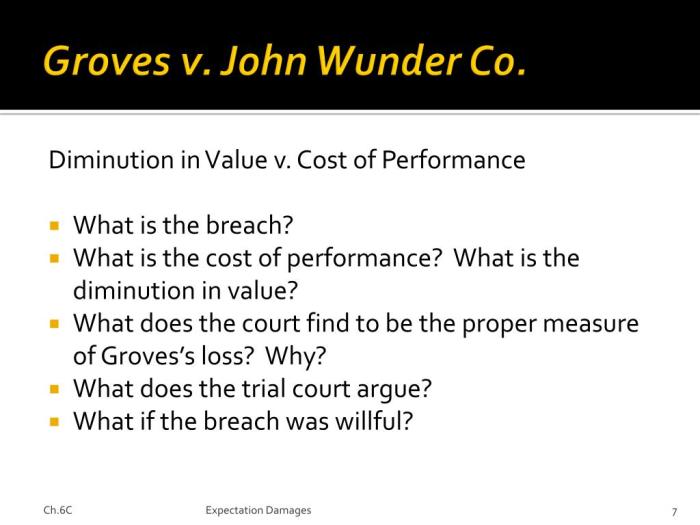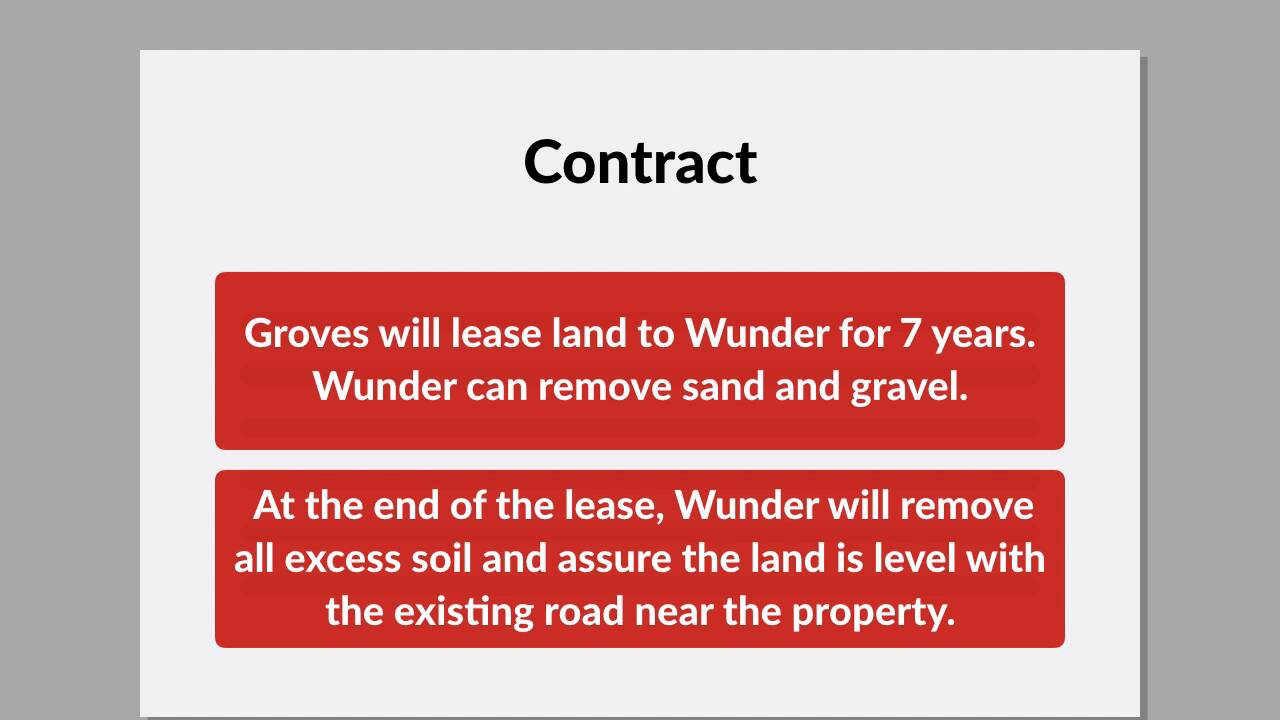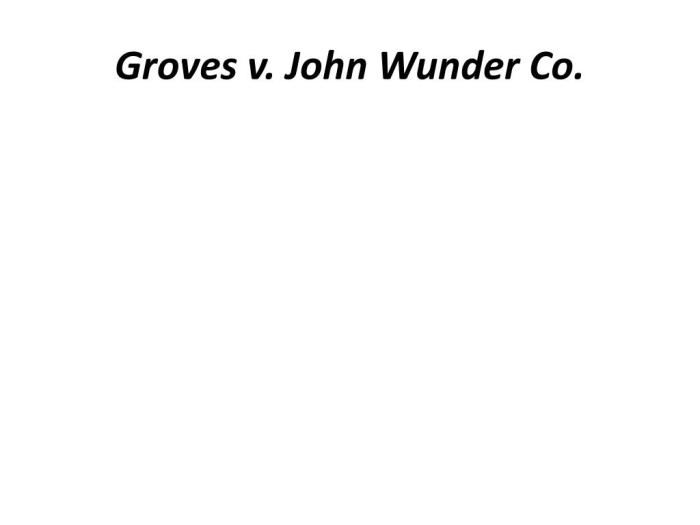Groves v john wunder co – Groves v. John Wunder Co., a seminal case in employment law, explores the legal principles governing employer liability for the actions of their employees. This case has had a profound impact on the development of doctrines such as respondeat superior and negligent hiring, shaping modern employment law practices.
The case revolves around the legal principles that were applied to determine the liability of the parties involved, including the doctrine of respondeat superior and the concept of negligence. These principles have been used to establish the boundaries of employer responsibility and have influenced the development of legal doctrines such as vicarious liability and negligent hiring.
Legal Principles
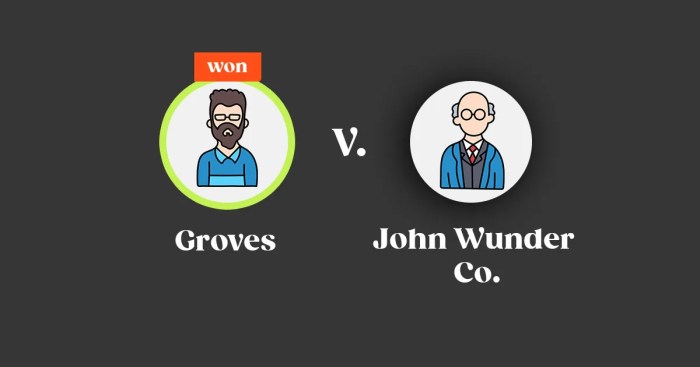
The Groves v. John Wunder Co. case was decided based on several legal principles, including the doctrine of respondeat superior and the concept of negligence.
Groves v. John Wunder Co. established important principles regarding the liability of employers for the negligence of their employees. For a deeper understanding of this topic, check out the informative unit 7 session 4 letrs . Groves v. John Wunder Co.
continues to shape the legal landscape, providing guidance on employer responsibilities and the rights of injured parties.
The doctrine of respondeat superior holds that an employer is liable for the actions of its employees committed within the scope of their employment. In this case, the court found that John Wunder Co. was liable for the actions of its employee, John Wunder, because he was acting within the scope of his employment when he negligently caused the accident.
Negligence, Groves v john wunder co
Negligence is the failure to exercise the care that a reasonably prudent person would exercise in the same situation. In this case, the court found that John Wunder was negligent because he failed to keep a proper lookout and failed to take reasonable steps to avoid the accident.
Impact on Employment Law
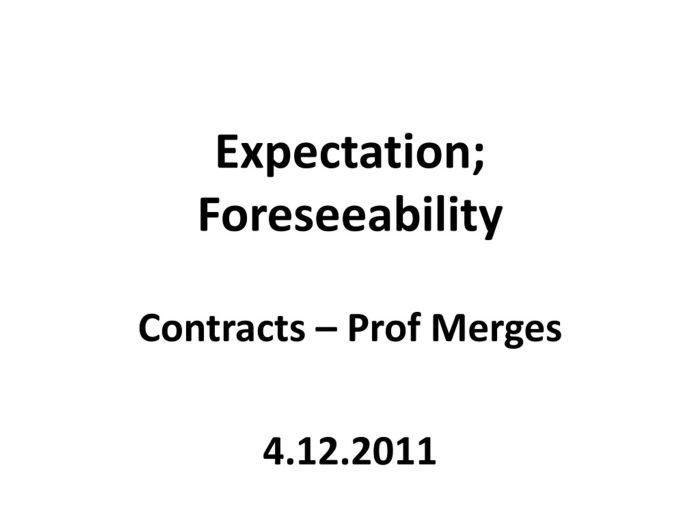
The Groves v. John Wunder Co. case significantly impacted employment law, particularly regarding employer liability for the actions of their employees.
The case established the principle of vicarious liability, holding employers responsible for the negligent or wrongful acts of their employees committed within the scope of their employment. This doctrine imposes liability on employers even if they did not directly participate in or authorize the employee’s actions.
Negligent Hiring
The Groves case also influenced the development of the doctrine of negligent hiring, which holds employers liable for failing to exercise reasonable care in hiring or retaining employees who pose a foreseeable risk to others.
In Groves, the employer failed to conduct a proper background check on the employee who assaulted the plaintiff. The court held that the employer’s negligence in hiring the employee contributed to the plaintiff’s injuries and established the precedent for negligent hiring liability.
FAQ Summary: Groves V John Wunder Co
What is the doctrine of respondeat superior?
Respondeat superior is a legal principle that holds employers liable for the wrongful acts of their employees committed within the scope of their employment.
How does the concept of negligence apply in Groves v. John Wunder Co.?
The concept of negligence was used to determine whether the employer had taken reasonable steps to prevent the employee’s harmful actions and whether the employer could have foreseen the potential for harm.
What is the significance of Groves v. John Wunder Co. in employment law?
This case established the principle that employers can be held liable for the actions of their employees, even if the employer was not directly involved in the wrongful conduct.
